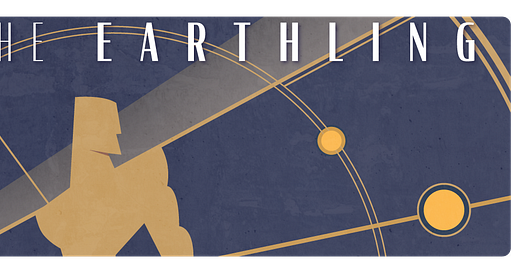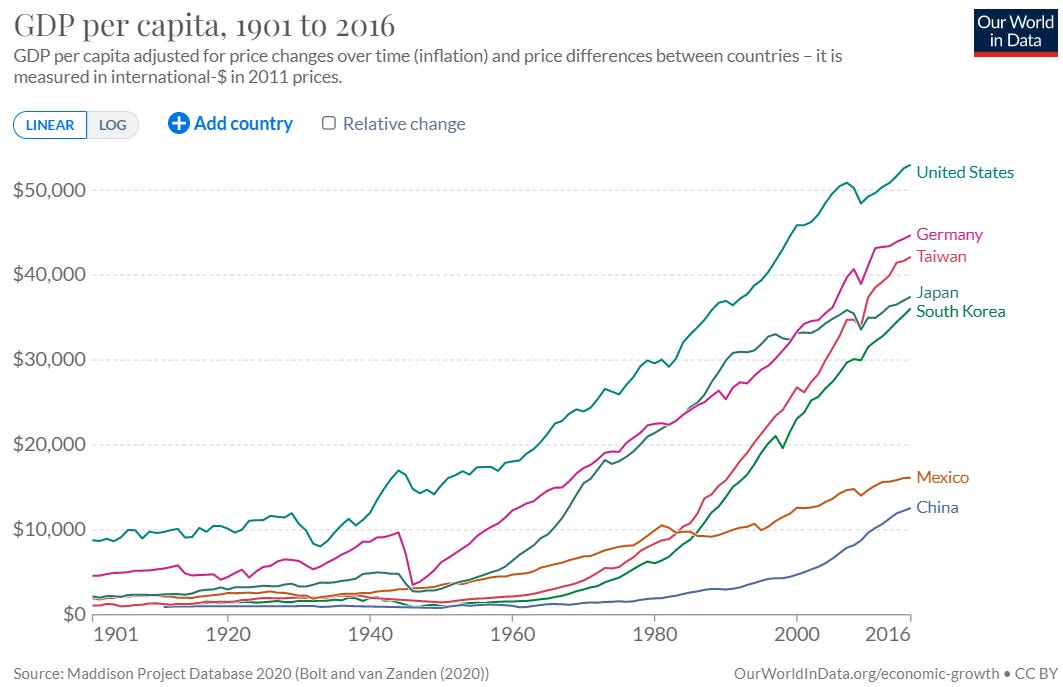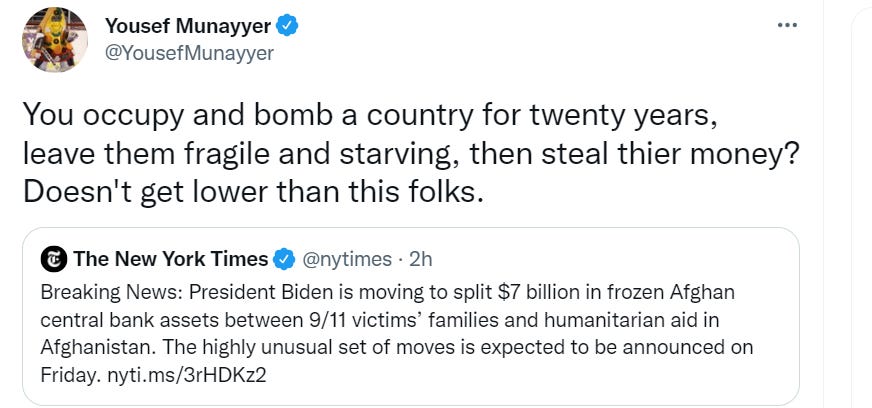Earthling: The man who foresaw the Ukraine crisis
Plus: Musk vs. Earth, AOC vs. Robot dogs, China’s climate change excuse, etc.
In the Atlantic, Anne Applebaum explains Vladimir Putin’s militant position on Ukraine as a product of his peculiar biography, with special emphasis on his career in the KGB and his romantic attachment to Russia’s bygone glory. Maybe, before writing the piece, she should have interviewed William Burns, director of the CIA. Back in 2008, when George W. Bush fatefully strong-armed European members of NATO into promising future membership for Ukraine and Georgia, Burns was warning that the consequences would be dire—but not because of Putin’s distinctive psychology. In a memo to then-Secretary of State Condoleezza Rice, Burns wrote, “Ukrainian entry into NATO is the brightest of all red lines for the Russian elite (not just Putin). In more than two and a half years of conversations with key Russian players, from knuckle-draggers in the dark recesses of the Kremlin to Putin’s sharpest liberal critics, I have yet to find anyone who views Ukraine in NATO as anything other than a direct challenge to Russian interests.” Burns added that it was “hard to overstate the strategic consequences” of offering Ukraine NATO membership, which, he predicted, would “create fertile soil for Russian meddling in Crimea and eastern Ukraine.” As Peter Beinart notes in his newsletter, Burns’s analysis is at odds with the claim (lately made in many Blob communiques, including Applebaum’s) that the Ukraine crisis is largely driven by Putin’s fear of encroaching democracy.
Should a big asteroid smack Planet Earth, our species (if still extant) would immediately deploy one of its greatest skills: figuring out who to blame. And the list of suspects could include… Elon Musk! Musk’s SpaceX has launched so many satellites as part of its Starlink internet access service that their reflection of the sun’s rays is making it harder for astronomers to see celestial bodies—including asteroids, a recent study found. Musk hopes to expand the Starlink network—which now comprises around 1,900 satellites—to 42,000 and has already gotten government approval to reach the 12,000 mark. “There definitely is sort of a planetary defense aspect here,” one astronomer told the Wall Street Journal, which reported on the study this week. Meanwhile, the cosmos has weighed in decisively on the side of worried astronomers; this week a “geomagnetic storm” emanating from the sun wiped out 40 SpaceX satellites.
A new Politico poll finds that most people in China are concerned about climate change. Which is good, because the poll also finds that most people in the 12 other countries that were surveyed want China to do more about climate change. But that second finding, though trumpeted by Politico in its headline, is a bit misleading. The poll—conducted by Morning Consult in collaboration with Politico—asked people if they thought China should face the same emission reduction goals “as other wealthy countries.” And China contends that it’s not really a wealthy country, and so should be held to the looser standards applied to developing countries. And it’s true that last year China’s per capita GDP was less than a fifth of America’s. On the other hand, its GDP has more than doubled over the past decade. So, if present trends continue, the wording of that Politico poll question will grow less and less misleading, and pressure on China to accept the climate change goals expected of wealthy countries will grow. Meanwhile, though, that was a pretty tendentiously worded poll question.
European scientists have reported a breakthrough in fusion energy research. In theory, fusion—which fuses atomic nuclei instead of splitting them, as happens in current nuclear reactors—could create energy without the large amounts of waste those reactors produce. But no one expects fusion to be practical for decades, and skeptics take a view of it that calls to mind the old line about Brazil: It’s the country of the future and it always will be.
Tweet of the week:






